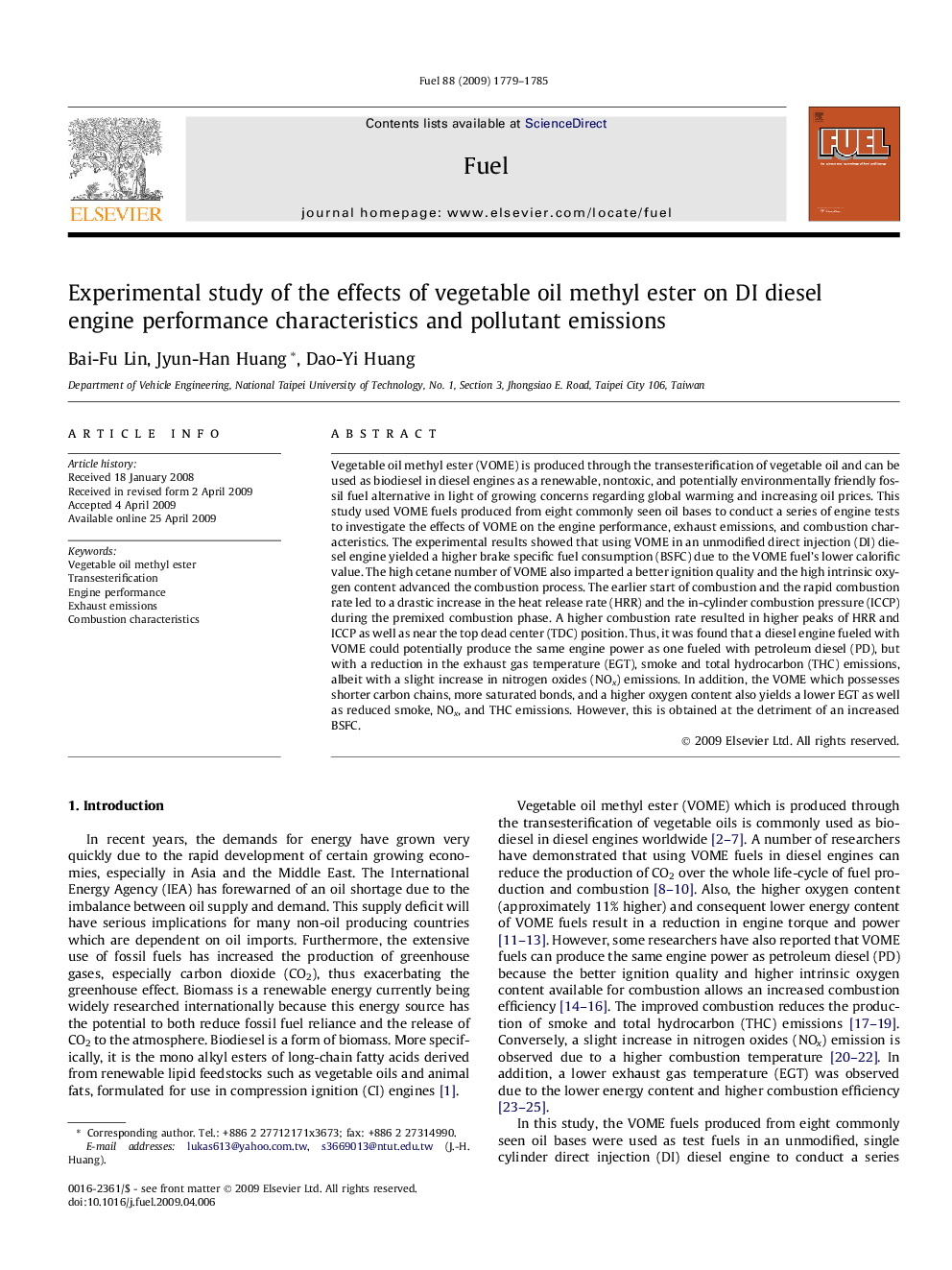| Article ID | Journal | Published Year | Pages | File Type |
|---|---|---|---|---|
| 207137 | Fuel | 2009 | 7 Pages |
Vegetable oil methyl ester (VOME) is produced through the transesterification of vegetable oil and can be used as biodiesel in diesel engines as a renewable, nontoxic, and potentially environmentally friendly fossil fuel alternative in light of growing concerns regarding global warming and increasing oil prices. This study used VOME fuels produced from eight commonly seen oil bases to conduct a series of engine tests to investigate the effects of VOME on the engine performance, exhaust emissions, and combustion characteristics. The experimental results showed that using VOME in an unmodified direct injection (DI) diesel engine yielded a higher brake specific fuel consumption (BSFC) due to the VOME fuel’s lower calorific value. The high cetane number of VOME also imparted a better ignition quality and the high intrinsic oxygen content advanced the combustion process. The earlier start of combustion and the rapid combustion rate led to a drastic increase in the heat release rate (HRR) and the in-cylinder combustion pressure (ICCP) during the premixed combustion phase. A higher combustion rate resulted in higher peaks of HRR and ICCP as well as near the top dead center (TDC) position. Thus, it was found that a diesel engine fueled with VOME could potentially produce the same engine power as one fueled with petroleum diesel (PD), but with a reduction in the exhaust gas temperature (EGT), smoke and total hydrocarbon (THC) emissions, albeit with a slight increase in nitrogen oxides (NOx) emissions. In addition, the VOME which possesses shorter carbon chains, more saturated bonds, and a higher oxygen content also yields a lower EGT as well as reduced smoke, NOx, and THC emissions. However, this is obtained at the detriment of an increased BSFC.
